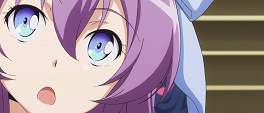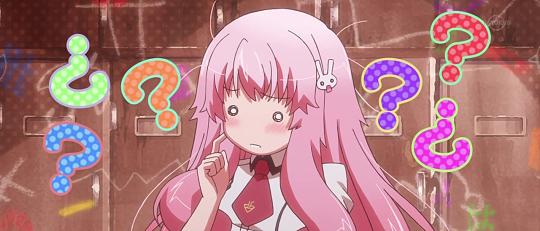A review of the Ryuugajou Nanana no Maizoukin anime series




I’ve found myself saying numerous times before in reviews that how a series starts isn’t necessarily how it continues. Putting aside first episode budget splurges, the tendency to cram as much into those first precious twenty or so minutes means that sometimes story, characterisation and continuity can be left by the wayside. Often this is just an innocent enough attempt to grab attention before settling in to a more measured pace. Ryuugajou Nanana no Maizoukin (Nanana’s Buried Treasure) is only the second series I can think of - the other being the underappreciated Ga-Rei Zero - that purposefully builds up your expectations and then mercilessly subverts them.
Enter Juugo, our slightly meat-headed protagonist who has just run away from home and travelled to the ultra-modern island built according to the vision of one girl genius. When he moves into his modest apartment he finds out, to his horror, that it is already occupied by the ghost of a young, beautiful girl. Whatever will he do? Chair back, spin down brain, prepare for quirky love comedy where Juugo finds out who killed this girl and bittersweet love blossoms. First episode closing credits roll, commence disinterested “hmph”.
Read the rest of this entry

There is no way of reviewing humour. It's always personal and at the mercy of such fickleness as "I wasn't in the mood". Enough then to say that Baka Test is my kind of humour; the kind where the jokes are obvious from the setup but the punchline is so much more over-the-top than expected. The kind where the minute-to-minute plot is irrelevant as long as the laughs keep on coming. The kind where with all the rules established, it's just a case of exploiting the environment.
laugh along at the absurdity, embrace the archetypes and accept the obvious but still giggle at the outcome
I called the first series a "thigh-slappingly hilarious comedy" and the second is no different, primarily because there is nothing new here. No great switch-ups or new characters only more of the same but tweaked and intensified. The reliance upon Hideyoshi's effeminate appearance is dialled down and tertiary characters such as Akihisa's and Minami's siblings are sidelined for a greater focus on the core love triangle. It's here it's at its weakest with a lengthy foray into Minami's move from Germany and then a confession that leads to confusion that leads to drama that eventually leads to a reset. Lacklustre and bereft of the sharp eye that makes the comedy so great, it's dead weight when compared with the homosexual overtures from Miharu and Toshimitsu that manage to be more genuine despite being played for laughs.
Read the rest of this entry




